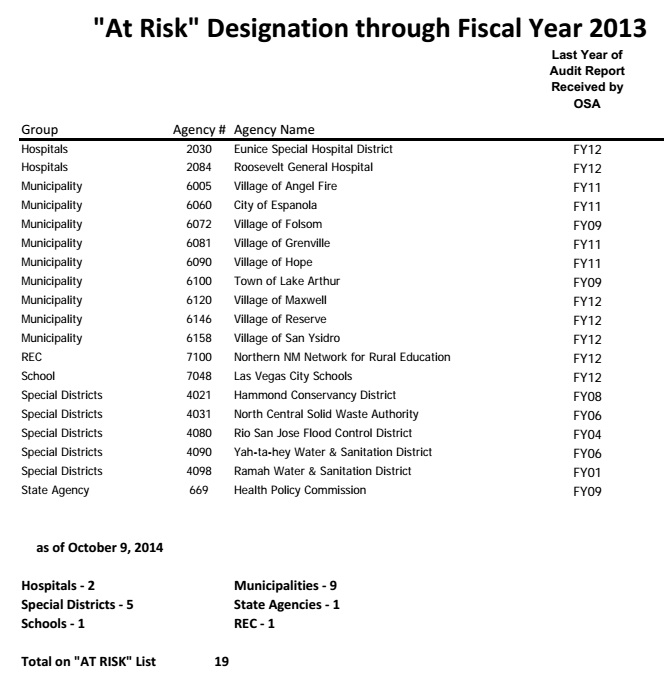[vc_row][vc_column width=”1/2″][text_output]
Candidates overestimate number of missing audits
Government agencies must account annually for how tax dollars were spent, but how many organizations are behind in those reports?
It depends on whom you ask.
Robert Aragon, the Republican state auditor candidate, said overall, there are more than 100 groups that have not filed their state audits.
Tim Keller, the Democrat state auditor candidate, said there are hundreds.
However, according to the New Mexico state auditor’s website, there are only 19 “at risk” entities that are not up to date on filing their auditor report as of fiscal year 2013.
The state auditor’s office is required to conduct annual financial audits of all government agencies in the state, to ensure that taxpayer money is being spent responsibly.
“Based on the way our state Constitution works, there is really one office that is the inspector general or the financial watchdog for the state of New Mexico and that’s the state auditor,” said Keller, a state senator.
Among these official unaudited organizations there are two hospitals, five special districts, one school system, one state agency, one recreational group and nine municipalities.
While the number of unaudited groups is smaller than either Aragon or Keller thought, whomever is elected as auditor in the Nov. 4 general election will still have his job cut out for him.
“One of the issues that really needs to be raised is whether we have sufficient resources (in the auditor’s office) and if they are being allocated properly,” Aragon said. “Obviously we won’t know that until we get into the auditor’s office.”
The five special districts that have not filed audit reports in anywhere from six to 13 years. Two major municipalities – the village of Angel Fire and the city of Espanola – are behind as well.
In Angel Fire, the city generates about $7.8 million annually, but has not submitted its audit since 2011. The city of Espanola does not list its budget online, but is also two years behind in its audits.
According to the 1978 Audit Act; however, the penalty for not filing an audit on time is to be put on the “at risk” list.
Current state auditor Hector Balderas, a Democrat now running for the New Mexico attorney general position, has altered the office significantly, and has made great strides in resolving many of the “at risk” entities, Keller said.
Aragon agreed, but said he thinks the office needs to go one step further and enforce strict compliance for all agencies who are mandated for annual audits.
Aside from these “at risk” lists, both Aragon and Keller agree that the money earmarked for educational systems needs to be better monitored.
For Aragon, the problems are with teacher pay and that principals rarely have the opportunity to offer pay raises for performance, and instead must pay based on seniority.
“It’s not best qualified,” he said. “It’s first in, last out. How does that serve a child?”
Keller said the issue is how educational dollars are spent overall. Mostly, he said that money is sent to out-of- state consultants, rather than to the classrooms.
“We’ve actually been increasing funding in the state Legislature, but the problem is – and the audit issue was – what happens to it after the legislature allocates it,” Keller said.[/text_output][share title=”Share this Post” facebook=”true” twitter=”true” google_plus=”true” linkedin=”true” pinterest=”true”][/vc_column][vc_column width=”1/2″][image type=”none” float=”none” info=”none” info_place=”top” info_trigger=”hover” src=”3336″][text_output]
[/text_output][/vc_column][/vc_row]
